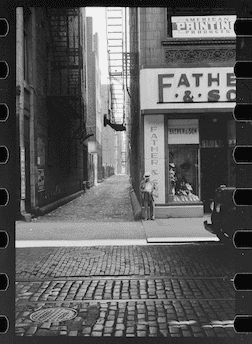My Father’s City
My father was a city boy in exile,
though he wouldn’t have mentioned it—
self-pity was not in his nature.
Our address was on a rural route,
a gravel road—one of a handful of houses
in the midst of pastures and farm fields.
Every time a car went by, it left a plume of dust
that sifted into our lives, bleached the willows
and lilacs to ghosts in our yard.
To my brother and me the road
was a dragon-like creature, breathing
white clouds, promising escape.
My father was in no hurry to go anywhere.
He’d been shipped to Burma and back
in the service of country and war—
the last thing he wanted was another itinerary.
He was content, I think, to let the dust settle
around him, like a slow-motion burial.
But he’d tell city stories—origin tales
of sorts—how he’d skip school,
catch the Clark Street trolley,
sneak into Wrigley Field. All his
side-street stickball heroics, those
alleys bloodied by Al Capone.
Try as I might, I couldn’t live his mythology.
I couldn’t ride my bike on imaginary streets
or hop a streetcar that wasn’t there.
I might skip school, sure—just to nap
in orchard grass, watch the red lights blink
on the radio towers all the lonely afternoon.
He waited, I think, for the city
to come to him—a sidewalk, sewer maybe,
a street sign, anything.
He waited. Raked the gravel
in the ditch back onto the verge.
Weeded his driveway.
Each year the countryside shrugged,
turned its back on curbing
and house numbers.
Each year the road issued
another bible-full
of dust.
It settled like the good news
in the corn and low places—
another dry run for the deluge.
When the city caught up with him,
he’d left it to me for good. I carry it inside,
folded like a map or a wing.
It’s blue, like its lake,
strangely warm and gentle,
despite the wind and cold. It’s patient.
Stands on the edge of the prairie,
waits for the dust to settle,
and its son to find his way home.
Published in San Pedro River Review Spring 2021

